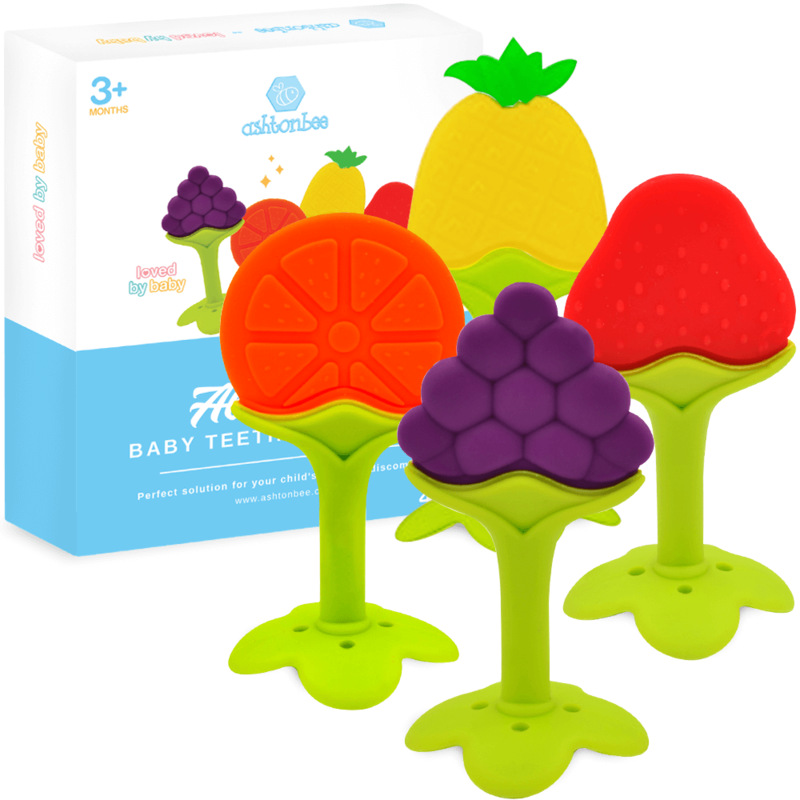
Watching a baby sleep is one of the most rewarding scenes for parents, but behind every baby’s slumber is the efforts it takes to help them doze off. When babies begin teething, the work becomes a little bit more challenging. Because of the pain teething brings, sleeping isn’t as breezy as the regular days.
The first step on how to help a teething baby sleep is understanding the signs so you can find ways to alleviate the pain. With the right approach and a few helpful tips, you can successfully support your teething baby’s sleep patterns and ensure their utmost comfort. This article will cover tips and strategies to soothe your little one and help them sleep better.
Understanding Teething in Babies
Knowledge is power, even in the teething stage of your little one. When you know important details about this milestone, you can assist your baby the best way you can. This section will help you, as a parent or caregiver, understand the milestones and symptoms associated with teething in babies.
Teething Milestones
Teething age varies per child with some experiencing it as early as six months and some as late as a year old. Below is a common timeline of when specific teeth come out.
Here is a general timeline for teething milestones:
- 6-10 months: Lower central incisors
- 8-12 months: Upper central incisors
- 9-13 months: Upper lateral incisors
- 10-16 months: Lower lateral incisors
- 13-19 months: First molars
- 16-22 months: Upper canines
- 23-31 months: Lower canines
- 25-33 months: Second molars
When your baby reaches three years old, they should have 20 primary teeth.
Symptoms of Teething
As your baby’s teeth start to break through the gums, they may experience a range of teething symptoms. Some common symptoms include:
- Irritability and fussiness
- Increased chewing on fingers, toys, or other objects
- Swollen, red, and tender gums
- Drooling, which can cause a rash on the baby’s chin or chest
- Disturbed sleep patterns
- Ear-pulling or cheek-rubbing
- Low-grade fever (though a high fever or diarrhea should prompt a visit to your pediatrician)
These symptoms can go on throughout the day and even during bedtime, making baby care more challenging as they need more attention and soothing.

How to Help a Teething Baby Sleep
When teething begins, parents like you often struggle to find effective ways to soothe their teething babies and help them sleep through the night. Your mind is occupied by questions like, “What helps a teething baby sleep?”
Check out the simple and practical measures you can take to relieve your little one and promote restful sleep.
Continue With Their Bedtime Routine
Maintaining your baby’s bedtime routine is essential during teething. Continue with activities such as reading, singing, or gentle rocking before putting them to sleep. Consistency helps to reassure your baby and provide a sense of security.
Warm Baths
A warm bath can be soothing for a teething baby. The warm water helps to relax their muscles and alleviate any discomfort they may be feeling. Once they’re clean and cozy, a bedtime routine will be much more effective.
Cuddles and Comfort
Your teething baby needs extra comfort during this time. Holding your baby close and offering gentle cuddles can help to soothe their nighttime fussiness. Providing reassurance and calming touch can help them feel secure, making settling down and falling asleep easier.
Gentle Massage
You can help reduce your baby’s discomfort by giving them a gentle massage on their gums and applying pressure with smooth, circular motions on the affected areas using your clean finger. This can help alleviate pain and make it easier for them to sleep.
White Noise Still Helps
Even during teething, white noise can benefit your baby’s sleep habits. Whether it’s a fan, a white noise machine, or an app on your phone, the calming sounds can help drown out any distractions and create a soothing environment for sleep.
Taking Care of Baby’s Gums When Teething
Now that you know how to help your baby sleep despite teething pains, here are some tips for you both to get through the day. Many teething pain relief options can be tried to soothe the baby’s gums, and here are some of them.
Teething Toys and Rings for Gum Massage
Teething toys and rings made of firm rubber can relieve your baby from sore gums when babies chew on them. Some options can also be chilled in the refrigerator for additional soothing effects. However, avoid giving your baby a frozen teething ring, as extreme cold can be harmful.
Using Cool Items and Treats to Help with Pain
Cold items can help numb the pain of teething for your baby. You can gently rub your baby’s gums with a cool, wet gauze or your clean finger. You may also use a fruit feeder pacifier to entice them with the process. Add frozen fruit and vegetable treats inside the pacifier for a cool and healthy treat.
Avoiding Choking Hazards
Always be mindful of potential choking hazards when choosing teething toys and items to help with your baby’s discomfort. Teething toys should be large enough that your baby cannot fit the entire thing in their mouth. Look for small parts that could break off or become loose during use.

Managing Excessive Drooling
If your baby is experiencing excessive drooling due to teething, keep a clean, dry cloth nearby. Regularly wipe their mouth and chin to help prevent skin irritation because of the wetness. Placing a bib on your baby can also be a helpful way to catch the drool and keep your little one’s clothes dry.
Over-the-Counter and Prescribed Medication
For more severe teething pain, over-the-counter medicines like baby acetaminophen or ibuprofen can be used to help manage your baby’s discomfort. It is still best to consult a pediatrician before giving any medication to your child, and follow their recommendations for dosage and frequency.
Be cautious with teething remedies containing lidocaine or benzocaine, as the FDA has recommended against their use for teething infants.
Get What You Need From Ashtonbee
Even if you’re a first-time parent, you can help a teething baby sleep and make their first year a less stressful experience. Your patience and understanding during this challenging milestone will help you and your baby a lot. Your baby will quickly return to their regular sleep patterns with consistency and care.
And if you need any teething relief essentials, check out what we have here at Ashtonbee. We got you from nightlights, tongue cleaners, finger toothbrushes, fruit feeder pacifiers, and teethers! Get yours now to give your baby the relief they need.



